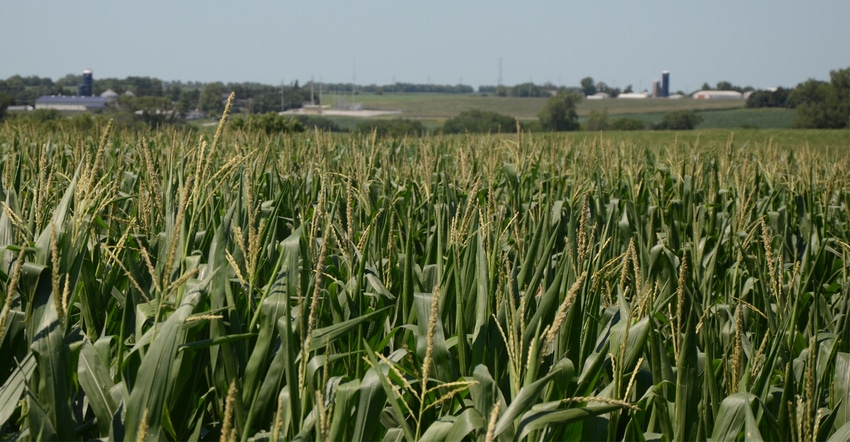May 20, 2021

Periodically, we receive questions from readers regarding specific legal issues they have encountered. Below are a few timely questions and our response:
How do I deal with grain contracts in a volatile market? A reader recently expressed concern that he might be unable to deliver on forward-contracted grain due to reduced production from a weather event. The reader doesn’t want to have to buy corn, especially in this market, to fulfill the contract – that would put the farmer in a severe financial bind. What happens if he defaults on the contract?
In this situation, the farmer does not have the crop to satisfy their delivery obligations. The farmer may have a defense, in Iowa, under the doctrine of commercial impracticability. A seller of grain may have a defense referred to as “commercial impracticability” under Iowa Code §554.2615, which excuses a seller from timely delivery due to “unforeseen, supervening circumstances not within the contemplation of the parties at the time of contracting.” Typically, the Iowa courts look at cases of “commercial impracticability” on a case-by-case basis – meaning they look at the underlying contract and circumstances unique to the case. To qualify for this defense, the producer must show that they, in good faith, cannot deliver on a timely basis.
Practically speaking, if a farmer thinks they may not be able to deliver on contracts entered into with a grain merchandiser, it may be best for the farmer to contact their grain merchandiser before the default and attempt to work out the best arrangement for all parties involved. In any event, farmers should contact their legal counsel and other professionals to assist them in reviewing their grain contracts and to help them determine the best course to resolve the underdelivery.
Some grain merchandisers have expressed concern that producers may default on current contracts in favor of soaring grain prices. Many producers have entered into forward contracts with grain merchandisers. These contracts are legally enforceable agreements. Thus, farmers who fail to deliver or are forced to delay delivery may face some serious penalties under the terms of the contracts. Of course, not all grain contracts are the same. Each grain merchandiser uses different language and provisions when contracting with sellers. If a seller doubts their ability to perform under the forward grain contracts they have entered into, they should first look to the terms of the contract they entered into.
How do I own land with my siblings? A reader recently sent us a question regarding ownership of an undivided interest in Iowa farmland. The reader, whose mother passed away, has several siblings, some of whom have passed away – meaning that the land will also pass to nieces and nephews. The reader asks, “How should I own this with my siblings and their children, and how can I protect my personal assets? I want to avoid family feuds.”
It is quite common for parents to leave each of their children an undivided, but equal interest in the farmland they own upon their death. With that background, and in answer to the reader’s question, it is important for the family members to discuss ownership options, including the possibility of owning the land in a legal entity, such as a limited liability company (LLC). With that many owners of land, I would suggest having a family meeting as soon as possible and investigate those options. A legal entity offers legal protection for your personal assets, and a “road map” for operations and options for members who want to exit the operation. I would also recommend contacting your insurance agent to discuss liability insurance options.
What are my rights if a neighbor encroaches on my land? What happens when a survey says this land is your land, but your neighbor does not agree? This reader recently purchased a farm, and after a land survey, learned a neighboring landowner is encroaching on the land.
Boundary disputes are often triggered by a survey of the property upon a sale or transfer of land. In Iowa, if a fence or other boundary marker has been treated by adjoining landowners as the boundary line for a period of 10 or more years, the boundary line can become the true boundary between the properties even if a survey of the property indicates otherwise. In fact, Iowa Code Ch. 650 gives landowners a special cause of action to determine disputed corners and boundaries, and to quiet tile in those boundaries and corners in the event of a dispute between adjoining landowners.
The Iowa courts have heard many cases involving Iowa Code Ch. 650 and have construed the law accordingly. Generally, the courts require that the line acquiesced in must be “known, definite, and certain, or known and capable of ascertainment. The line must have certain physical properties such as visibility, permanence, stability, and definite location.”
In the event of a boundary dispute or in an attempt to avoid boundary disputes with adjoining landowners, there are several considerations landowners should keep in mind. Communication is the key to avoiding disputes, and a good understanding of the law remains the best way to resolve issues that do arise quickly and amicably. The best piece of advice I can give you in dealing with the adjacent landowner is to provide the landowner with information in writing so they can review and understand Iowa’s laws.
Next month we’ll focus on a wrap-up of the 2021 Iowa legislative session and bills signed into law that may impact farmers. We’ll also discuss federal legislative proposals.
Herbold-Swalwell is an attorney with Brick-Gentry in Des Moines. Email her at [email protected].
About the Author(s)
You May Also Like






